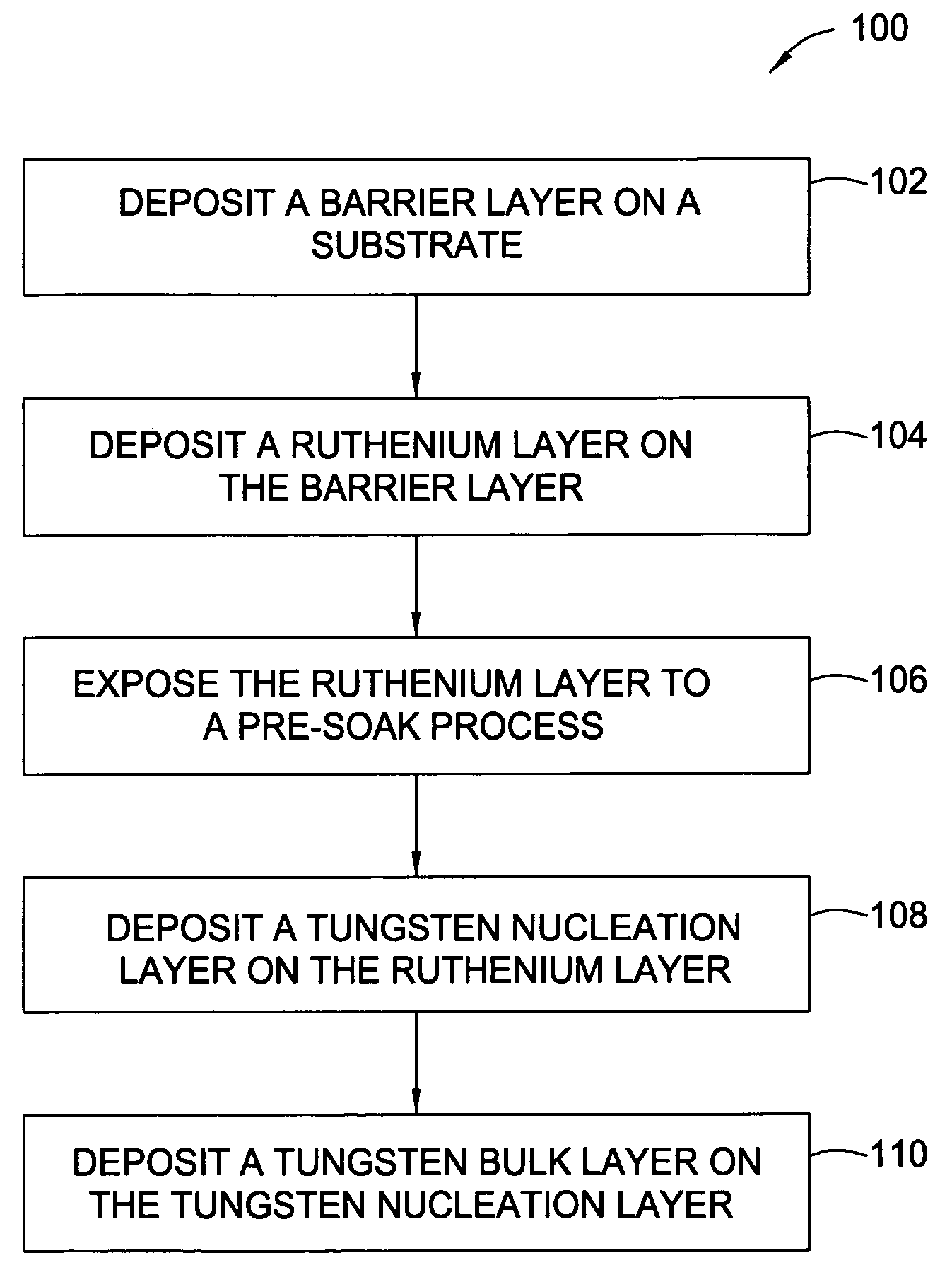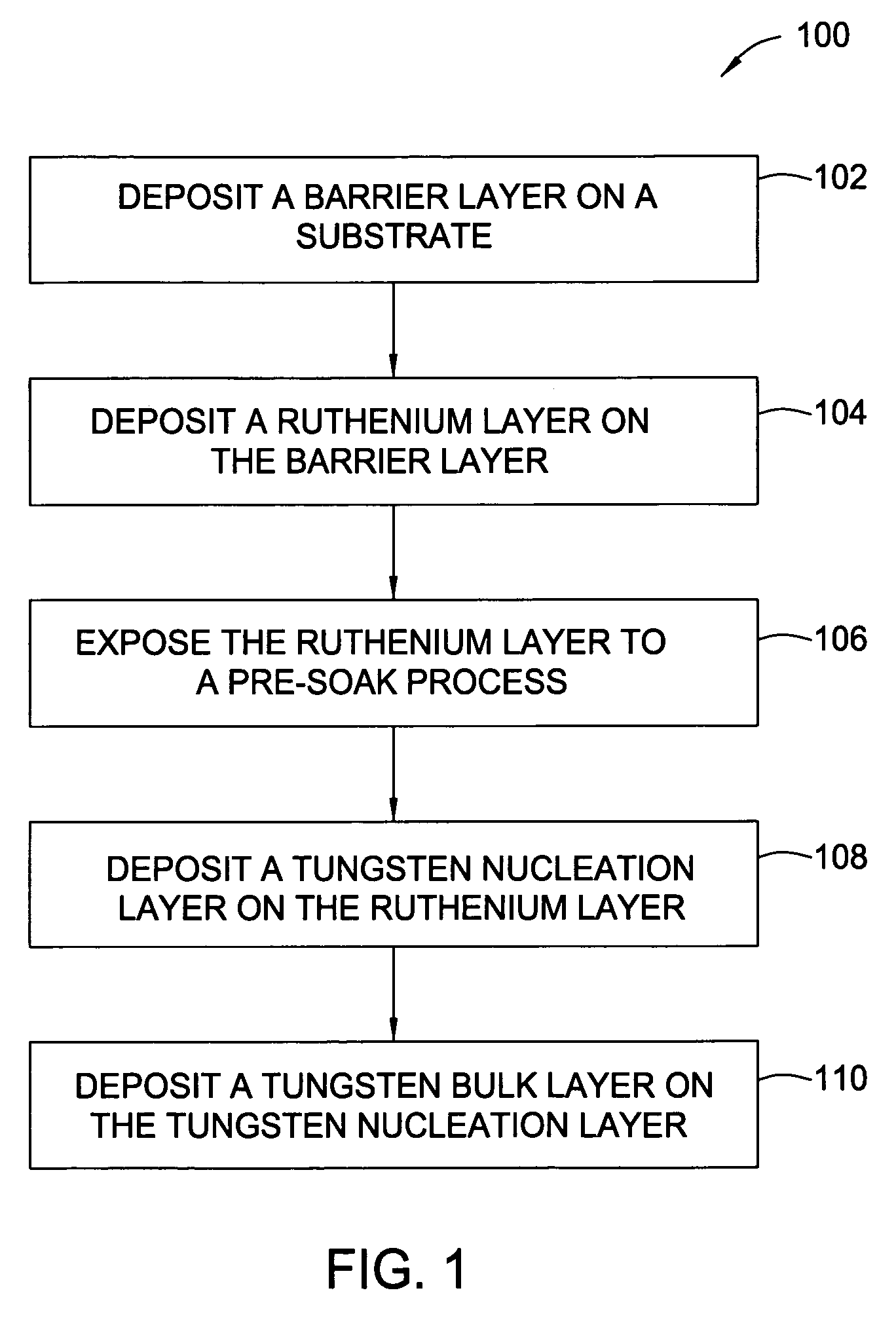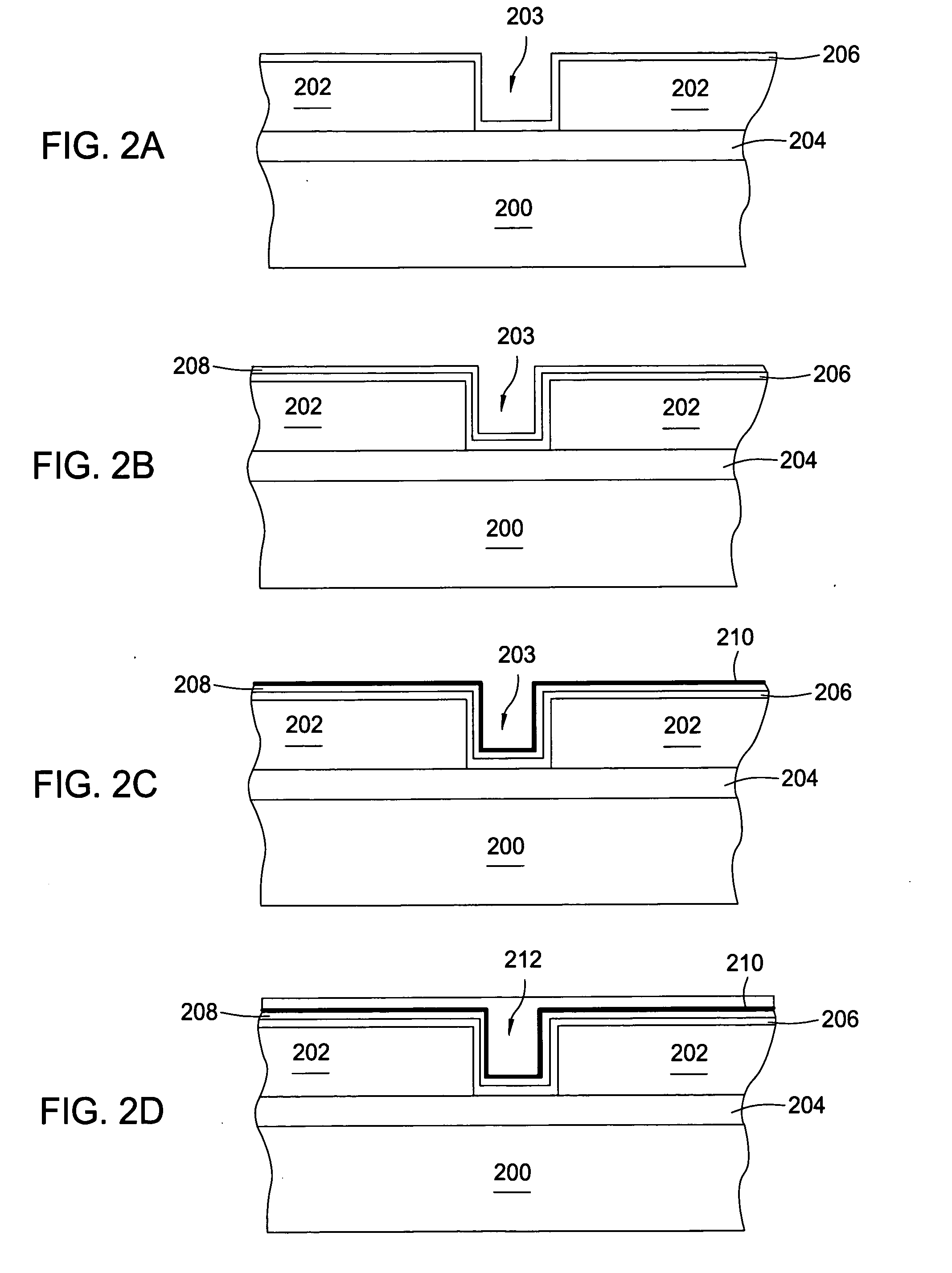Ruthenium as an underlayer for tungsten film deposition
a technology of tungsten film and ruthenium, which is applied in the direction of chemical vapor deposition coating, transportation and packaging, coating, etc., can solve the problems of increasing the contact resistance of the circuit, forming one or more voids or discontinuities within the feature, and conventional deposition processes having difficulty in forming interconnect structures
- Summary
- Abstract
- Description
- Claims
- Application Information
AI Technical Summary
Benefits of technology
Problems solved by technology
Method used
Image
Examples
Embodiment Construction
[0028] A method for depositing multiple layers of materials to form electronic devices is disclosed. Generally, the method includes depositing a barrier layer on a substrate surface, depositing a ruthenium layer on the barrier layer, depositing a tungsten nucleation layer on the ruthenium layer, and depositing a tungsten bulk layer on the tungsten nucleation layer. During the deposition of any of the aforementioned layers, the method may include a variety of deposition techniques including atomic layer deposition (ALD), chemical vapor deposition (CVD), physical vapor deposition (PVD), electrochemical plating (ECP) and / or electroless plating. Preferably, the method utilizes ALD processes to deposit the barrier layer, the ruthenium layer, the tungsten nucleation layer and the tungsten bulk layer. Also, a pre-soak process to nucleate an underlayer may be used prior to starting any of the deposition processes, for example, a ruthenium layer may be exposed to a pre-soak process that incl...
PUM
| Property | Measurement | Unit |
|---|---|---|
| Time | aaaaa | aaaaa |
| Time | aaaaa | aaaaa |
Abstract
Description
Claims
Application Information
 Login to View More
Login to View More - R&D
- Intellectual Property
- Life Sciences
- Materials
- Tech Scout
- Unparalleled Data Quality
- Higher Quality Content
- 60% Fewer Hallucinations
Browse by: Latest US Patents, China's latest patents, Technical Efficacy Thesaurus, Application Domain, Technology Topic, Popular Technical Reports.
© 2025 PatSnap. All rights reserved.Legal|Privacy policy|Modern Slavery Act Transparency Statement|Sitemap|About US| Contact US: help@patsnap.com



